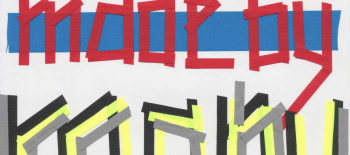Founded by Daniel Hahn in 2010, the Emerging Translator Mentorship programme aims to develop successive new cohorts of literary translators into English, particularly for languages whose literature is currently under-represented in English translation.
The scheme matches up experienced translators with emerging translators for a six-month period during which they work together on practical translation projects, developing their craft through working on a chosen text or texts. The mentor acts as an adviser to the mentee on aspects of life as a professional translator, such as time management, meeting deadlines, managing finances and understanding contracts, and as an advocate for their mentee with publishers in search of literary translators.
The evidence to date suggests that participation in the scheme represents, in itself, a significant professional development for mentees, with publishers seeing the mentoring cohort as a reliable source of high quality emerging translators.
What you will receive
Mentees receive a £500 bursary and reasonable travel expenses associated with the mentorship, which varies according to the relative geographical locations of the mentoring pair. The mentorship will include a residential weekend as well as access to various (UK) industry events such as International Translation Day and London Book Fair. Samples of mentees’ work will also be published in an anthology.
National Centre for Writing will facilitate an initial planning meeting between successful applicants and their mentors to agree on the scope of their project and how they will work together. The mentoring period lasts for six months, from October 2019 to March 2020, during which the mentoring pair will meet at least four times, either in person, by Skype or by telephone as appropriate. In between meetings, they will exchange work and comments via email.
Who can apply?
The programme is open to emerging translators at no cost to them. An emerging translator is someone who has published no more than one full-length work of translation. MFA and MA students in translation can apply, but priority may be given to those who do not have access to the kind of guidance already present in a translation degree programme. Though English is the target language, the emerging translator need not live in the UK (with the exception of the Visible Communities mentorship). We particularly welcome applications for all mentorships from those groups which are currently under-represented in the literary translation community.
How to apply
Your application should include:
A covering letter stating why you believe you would benefit from a mentorship
Your CV
A one-page sample project proposal
A sample translation of up to 2,000 words of prose or up to 100 lines poetry or dramatic text along with the corresponding source text
Applications should be emailed to translation@nationalcentreforwriting.org.uk and queries addressed FAO Sarah Bower at the same address.
The deadline for receipt of entries is 11.59pm BST, Tuesday 1st September 2020.
Successful applicants will be informed by Friday 11 September and will be announced publicly at International Translation Day on Monday 30 September.
The confirmed languages for the 2020 NCW Emerging Translator Mentorship programme are:
Danish (mentored by Paul Russell Garrett)
Japanese (mentored by Polly Barton, in partnership with the Harvill Secker Young Translators’ Prize)
Italian (mentored by Howard Curtis)
Korean (mentored by Anton Hur)
Polish (mentored by Antonia Lloyd-Jones)
Norwegian (mentored by Kari Dickson)
Russian (mentored by Robert Chandler)
Swiss French (mentored by Sarah Ardizzone)
One mentorship a for UK-based BAME literary translator and/or UK-based literary translator from the diaspora, heritage or community languages of the UK, supported by our Visible Communities Programme (mentored by Meena Kandasamy)
Read more and apply HERE.



